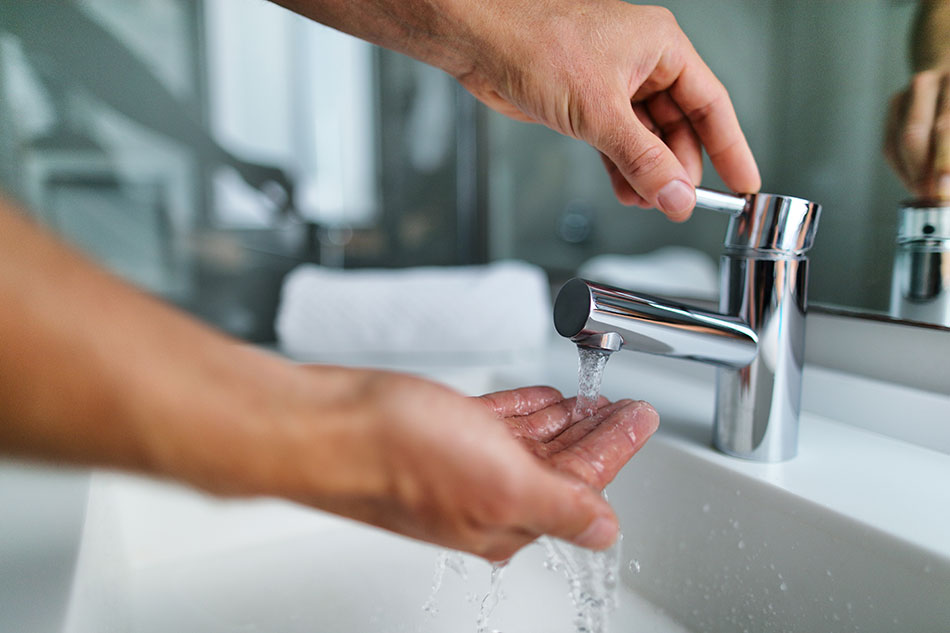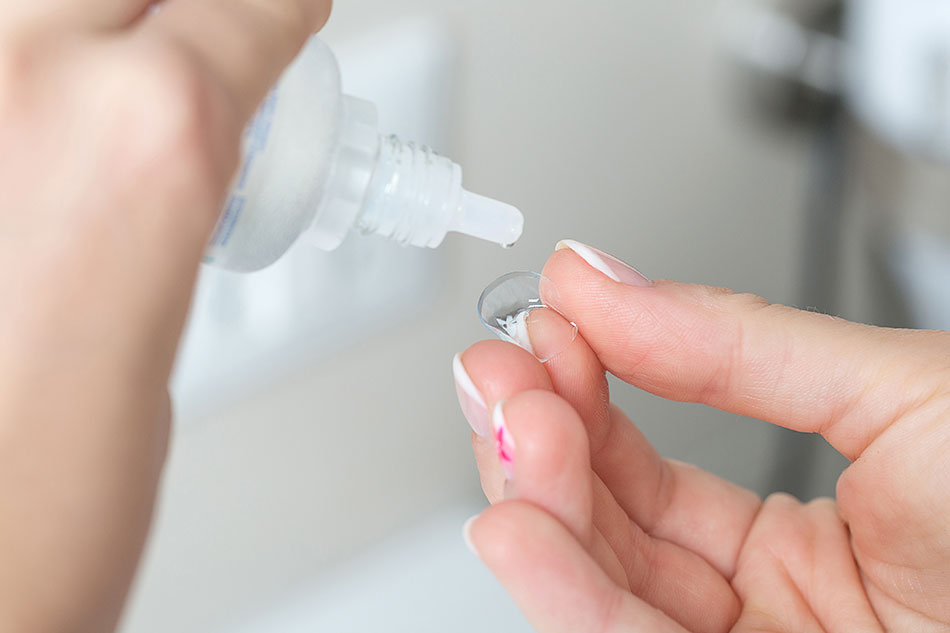Can You Put Contacts in Water? Risks and Safe Alternatives

If you wear contacts long enough, you will eventually run into an emergency. Maybe you lose your case, run out of solution, or need to take your lenses out before bed. In those moments, many people ask: Can I put my contacts in water?
The short answer: No. You should never put contact lenses in water. Doing so can damage your lenses, introduce bacteria, and put your eye health at serious risk.
Here is why contacts and water do not mix, plus safer alternatives and tips to protect your eyes.
Do Contacts and Water Mix?
It may seem harmless, but soaking or rinsing contacts in water can cause multiple problems:
- Bacteria and organisms in water can attach to lenses and infect your eyes
- Lenses absorb water, causing them to swell, warp, and lose their proper shape
- Reduced comfort makes them harder to wear and may scratch your eyes
One of the most dangerous organisms found in water is Acanthamoeba, a microscopic parasite that can cause a severe eye infection known as Acanthamoeba keratitis. This rare but serious condition can result in long-term vision damage.
Even tap water is not sterile. That is why the FDA and CDC warn against exposing contacts to any type of water, including tap, bottled, distilled, or saliva.
Why Saliva Is Not a Safe Substitute
Some people think placing a lens in their mouth can add moisture in an emergency. This is extremely unsafe.
- Your mouth contains hundreds of types of bacteria
- Saliva is not sterile and can lead to immediate infection when transferred to the eye
- Using saliva can spread harmful germs and cause severe irritation
Always avoid saliva as a substitute for lens solution.
How Can I Prepare for Contact Lens Emergencies?
Since putting your contacts in water is a flat out NO, you should do everything you can to prepare for emergencies.
When you wear contact lenses long enough, you'll know that mistakes happen. The best thing you can do is to prepare an emergency contact lens kit.
This kit should consist of an empty case and a travel size bottle of contact lens solution. You also need another contacts case with a spare set of lenses inside. You can fit these items in a little pouch that you can take with you wherever you go.
Contact lenses aside, always keep a backup pair of glasses with you. This will come in handy even if you've been out and simply want to give your eyes a rest. Make sure that you always get your glasses prescription filled as well. You also need to purchase a hard case that will protect the frames.
How To Prolong Lens Quality

To keep your contacts comfortable and safe for as long as possible:
- Wash and dry your hands before handling them
- Rub and rinse with fresh solution every night
- Never skip cleaning steps, even if you are in a hurry
- Stay hydrated, as dry eyes often make contacts feel uncomfortable
Remember: water belongs in your body, not on your lenses. Drinking plenty of water supports healthy tear production and keeps your eyes naturally moisturized.
How Can I Prevent Discomfort While Wearing My Lenses?
For starters, be sure that the case you're using is always clean.
Grime will build on and in the case that can make your contacts rough to wear. Take some hot soap and water to the case and scrub hard to make it as good as new. However, your lens case isn’t everlasting! Please replace your contacts storage case once every three months.
You also need to know when to let a pair of contact lenses go. If you've been wearing them for too long, they'll begin to get scratchy and uncomfortable in your eyes. Never wear your lenses past their recommended schedules. You should also never wear expired contacts.
It may be worthwhile to also carry some rewetting drops. That way, you can ensure that your lenses are always moisturized.
What if I Need to Buy Some Emergency Contact Lenses?

There may be a time where you're travelling and simply don't have a backup set of lenses available. When this happens, you should shop around ASAP so you can buy a box of lenses.
This is why it's so important to have a valid prescription for the year. You can bring the hard copy with you or have a PDF in your email account. This will allow you to get your prescription filled from any licensed optometrist.
These prescriptions are good for a year, so always know when it's time to get a new appointment. If you can't find a copy of your current prescription, don’t worry! Your optometrist’s office can forward it to where you're purchasing your lenses.
If you don't have a prescription and are really in a pinch, you can always stop in at a local optometrist or optician. Even if they don't have boxes in stock, you'll generally always leave with a trial pair that can tide you over.
Keep up with Your Eye Health and Lens Care
You've now answered the common question, "Can I put contacts in water?" You should begin to learn all that you can about wearing your lenses properly.
Wearing contact lenses becomes a big part of your life once you get that first prescription filled. To preserve your vision, it's important that you avoid the most common mistakes.
Above all, you need to keep your medicine cabinet stocked with high-quality lenses to enhance your vision. Just make sure they are within their expiry dates. In the meantime, stay tuned to our website so that you can catch a sale on some contact lenses!
FAQs: Contacts and Water
Can You Soak Contacts in Water Overnight?
No. Water contains bacteria and parasites that can attach to your lenses and cause serious eye infections. Always use contact lens solution.
What Happens if You Accidentally Rinse Contacts With Water?
Discard the lenses or disinfect them with fresh solution before wearing again. If discomfort occurs, remove the lenses immediately and contact your eye doctor.
Is It Safe To Put Contacts in Saliva?
No. Saliva is full of bacteria and germs that can cause eye infections. Never use your mouth as a substitute for solution.
What Should I Do if I Do Not Have Solution?
Remove your contacts and store them in a clean case without liquid until you can buy solution. Use backup glasses in the meantime.
Can I Swim or Shower With Contacts In?
No. Pools, hot tubs, lakes, and even showers expose your lenses to waterborne bacteria and parasites. Always remove lenses before swimming or showering.
